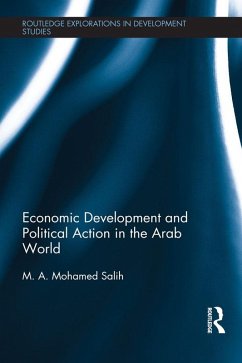Analysis of the North African 'Arab Spring' revolt against authoritarianism tends to focus reductively on social media, youth unemployment and citizen agitation. Whilst recognizing these factors, this book explains the revolt against the backdrop of a faulty developmental paradigm which privileged growth-centered export-led development at the expense of the domestic economy on which the majority of the population subsists. The book goes on to explore how european policies of toleration contributed towards perpetuating authoritarian regimes. This timely and sophisticated exploration of the revolt and its consequences is of great interest to researchers, policy makers and activists.
Dieser Download kann aus rechtlichen Gründen nur mit Rechnungsadresse in A, B, BG, CY, CZ, D, DK, EW, E, FIN, F, GR, HR, H, IRL, I, LT, L, LR, M, NL, PL, P, R, S, SLO, SK ausgeliefert werden.

